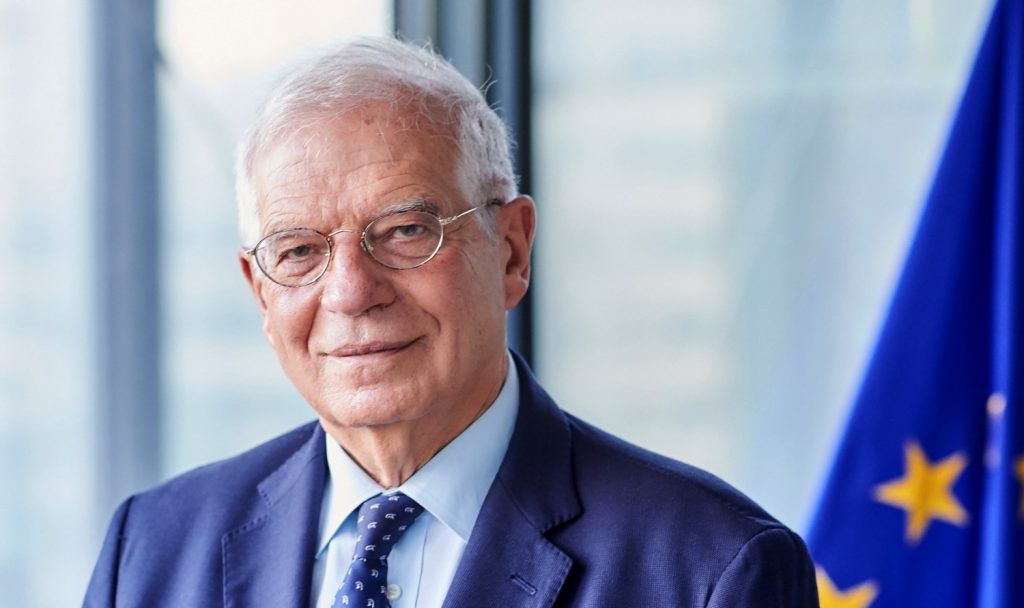Australia/Israel Review
Europa Europa: The Terms of Association
Oct 28, 2022 | Alex Benjamin

Blink and you could have missed it. Possibly the most important meeting between Israel and the EU in a decade (for that was how long had elapsed since the last similar meeting) – the EU Association Council – took place on October 3.
By all accounts, it was a wide-ranging meeting, discussing the many close and mutually beneficial political, cultural, people-to-people, tourism, trade and investment relations between the EU and Israel, as well as the significant economic, financial, research and innovation, and security cooperation arrangements in place.
The EU praised Israel over the recent signature of a Memorandum of Understanding on cooperation related to natural gas between the EU, Israel, Egypt and Lebanon, and for Jerusalem’s cooperation with the EU on COVID-19, on Ukraine and on research and development.
On the peace process, the EU reiterated its commitment to a two-state solution, restated its opposition to settlements and condemned recent terror attacks against Israel.
But my favourite bit from the anodyne statements that came out of the European External Action Service (EEAS), the EU equivalent of a foreign ministry, was this gem: “The EU underlines the importance of communicating to European and Israeli citizens about the mutual benefits of EU-Israel cooperation with a view to increasing the public awareness on both sides.”
Why did this tickle me so much? Because, as any pro-Israel advocate operating in Brussels will tell you, the EEAS could hardly imagine anything worse than communicating to EU citizens the mutual benefits of working with Israel.
How else to explain the minimum fuss made over this ten-years-in-the-making meeting? Yes, we are amid a war, Iran is beset with protests and the British economy is tanking. Yet that doesn’t explain it.
I subscribe to the EEAS press service newsroom. I’m pinged at least half a dozen times daily even on quiet days (more on busy ones) with urgent news such as EEAS Chief Josep Borrell’s remarks to the EU’s diplomatic academy or his thoughts on the Horn of Africa. The EEAS isn’t exactly shy about promoting itself or its activities and opinions.
The real reason for the lack of fanfare was confirmed to me by a senior Israeli official less than a year ago, when I pointed out to him that Borrell was adamant about linking any resumption of the Association Council to significant movement in the peace process with the Palestinians.
The Israeli official’s answer was clear: the EEAS had been dragged reluctantly – like a petulant teenager to a family dinner – by the 27 EU member states themselves to resume Association Council meetings. Like the teenager, EEAS would have happily sat in the corner with its headphones on staring at a mobile if it could have gotten away with it. Instead, it released the perfunctory statement I referenced earlier.
Consider this: in terms of high-level EU visits to Israel, the freshly elected President of the European Parliament, Roberta Metsola, visited the Jewish state in May 2022. President of the European Commission Ursula Von Der Leyen visited in June 2022. Earlier meetings occurred between then-Israeli Foreign Minister Yair Lapid and EU Foreign Ministers at the margins of the Foreign Affairs Council in July 2021. Borrell? I understand from high-level sources in Israel that while a high-level trip to Israel has been requested from EEAS, the Israelis are not beside themselves with enthusiasm to invite the recalcitrant Borrell, or his headphones and mobile, to dine with them.
The rest of the EU and diplomatic world is moving forwards on Israeli relations. The Abraham Accords have significantly changed the dynamics, coupled with general fatigue with a Palestinian Authority that offers nothing except incendiary rhetoric and unrealistic expectations that cannot be delivered.
Israel, the ‘start-up nation’, is replete with skills it wants to share, so it is natural that a majority of EU member states want to cooperate, given that the EU is hardly renowned as a dynamic innovation hub. So most EU member states simply shrugged and said “well, if Israel’s old implacable enemies in the Middle East can work with it, why shouldn’t we?”
Mr Borrell’s answer to this question was given in remarks he made on his way to the Association Council: “It’s all very well having peace with Arab states but you also need peace with the Palestinians.” It’s a statement that everyone can agree with in principle, except that Borrell means any movement, political or economic, with Israel must be linked to peace-processing with the Palestinians. This barmy and unrealistic position is, in essence, a de-facto policy of permanent exclusion of Israel straight out of the far left’s playbook (Borrell is a Spanish Socialist), given the stance of Israel’s current ostensible partner for peace on the Palestinian side.
Thus, we can be grateful that overall foreign policy is fully in the hands of the 27 EU member countries and not Borrell. This means we have to swallow bland and reluctant statements from the EEAS, but this is a small price to pay for moving forwards with EU 27-Israel relations without him.
Tags: Europe, European Union, Israel






